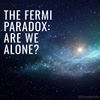The word "word" is one of the most commonly used terms in the English language, but have you ever stopped to wonder about its origin? The history of the word "word" is a fascinating journey that takes us back through time, exploring the roots of language and communication.
The word "word" can be traced back to the Old English word "word," which meant "speech, talk, statement, or news." This word was derived from the Proto-Germanic word "wurdan," which meant "to become." This early meaning of "word" suggests that it was associated with the act of speaking or becoming something.
In Old English, the word "word" was used to refer not only to spoken language but also to the written word. This is significant because the development of writing and the use of written language is considered to be a key milestone in the evolution of human communication.
The concept of the written word is believed to have originated in ancient Sumeria, around 3500 BCE. This civilization developed a system of writing known as cuneiform, which consisted of wedge-shaped marks made on clay tablets. This system of writing allowed for the recording of important information, such as laws, religious texts, and historical events.
As writing became more widespread, the word "word" took on a new meaning. It began to be used to refer specifically to a unit of language that was written or printed. This new meaning reflected the growing importance of written communication in human society.
Today, the word "word" is used in a variety of contexts. It can refer to spoken language, written language, a promise or commitment, a piece of information, or even a password. The versatility of the word "word" reflects the many different ways in which language is used to communicate in our modern world.
In conclusion, the word "word" has a long and fascinating history that stretches back to the early days of human communication. From its origins in Old English and Proto-Germanic to its current use in modern English, the word "word" has evolved to reflect the changing nature of language and communication. As we continue to develop new technologies and new ways of communicating, the word "word" will undoubtedly continue to evolve and adapt to the ever-changing landscape of human communication.
Discover More
Most Viewed
Christmas is a season of joy, love, and traditions. And what better way to get into the holiday spirit than through timeless carols? These musical gems have been bringing people together for generations. Here’s our ranked list of the Top 10 Christmas Caro…
Read More

















